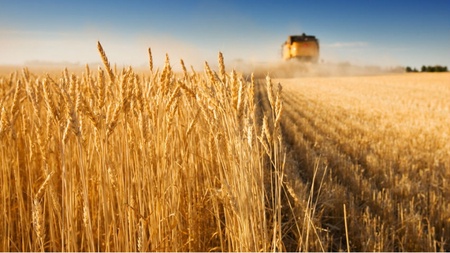Global agri-food businesses are using the launch of a new carbon management web app to highlight the need for greater collaboration on agricultural sustainability.
The Cool Farm Tool (CFT) is a unique piece of computing technology originally developed by scientists from the University of Aberdeen’s Environmental Modelling Group in partnership with Unilever and the Sustainable Food Lab.
Its aim is to provide those working in the farming and food industries with a way to calculate, and ultimately take action to mitigate, the carbon footprint of their production process.
Members of The Cool Farm Institute (CFI), including PepsiCo, Unilever, Heineken, Marks & Spencer, Tesco, Yara and Fertilizers Europe have spearheaded its development.
But the Institute members say that the scale and complexity of the challenge is so great that more co-operation is essential to secure an environmentally responsible, climate resilient and economically sustainable food system of the future.
To support this goal the Cool Farm Institute has launched the new calculator and is inviting businesses of all sizes to join the initiative.
The tool can be accessed via the Institute’s website: http://www.coolfarmtool.org/ .
Richard Heathcote, Executive Committee member of the Cool Farm Institute, launched the call for action at the 2014 Farming Futures conference in the United Kingdom – an event exploring the role of agricultural technologies in delivering food supply-chain resilience.
Mr Heathcote said: “The Cool Farm Institute has brought together leading academics and major food and drink industry players to develop a user-friendly, on-line version of The Cool Farm Tool. The CFI is now looking forward to seeing many more farm assessments being done all over the world on a range of crop and livestock systems. The Institute also has exciting plans to extend the tool’s capabilities to other key environmental metrics, such as water and biodiversity”.
The Cool Farm Tool has been successfully used by farmers of all sizes and types across the world to understand the carbon footprint of their production systems and adapt management to improve their performance, from smallholder cotton and coffee farmers in India and Kenya to egg and potato producers in the Unites States and United Kingdom.
Carmel McQuaid, Head of Sustainable Business, at Marks & Spencer said: “It’s exciting to see the results of what happens, when you combine a willingness to collaborate and an enabling technology. I’m hopeful this will transform the business of reducing farm emissions from being a burden on farmers to being a valuable decision support tool.”
Jan Kees Vis, Global Director, Sustainable Sourcing Development at Unilever, said: “Reporting greenhouse gas emissions is part of the Metric Reporting requirements of our Sustainable Agriculture Code. Therefore, the Cool Farm Tool is important to us as we head towards achieving our Unilever Sustainable Living Plan targets. It brings practical benefits for farmers, to help reduce carbon emissions on their farms. The aim is that more and more companies in the agricultural sector start using this tool, so that we can see real industry transformation.”
Lisa Buckley-Hoyle, Tesco Group Food Technical Director said “We were really excited to trial the tool with a group of our producers through our Tesco Producer Network in 2013. As the first retailer to do this, Tesco was able to suggest improvements to the CFT prior to its launch this year. We are now working with a wider group of producers to support using the tool to track their carbon reductions and resource efficiency.”
Jacob Hansen, Director General, Fertilizers Europe, said: “Fertilizers Europe is delighted to be part of this project. The CFT is a simple and user-friendly tool that allows farmers to choose the best type of fertilizer and most appropriate application techniques. The tool helps the farmer maximize the productivity of their crops, whilst limiting greenhouse gas emissions and other losses to the environment.”
For more information contact info@coolfarmtool.org or +1 (802) 436-4062 ext 107.
The tool is free to use for individual farmers – although commercial use by supply chain businesses requires a use or membership fee. The tool and fee details can be accessed via www.coolfarmtool.org .
The web tool is based on an Excel model originally created by the University of Aberdeen in partnership with Unilever and the Sustainable Food Lab. The Cool Farm Tool has the backing and support of leading academics and NGOs working on sustainability in agriculture. More information about the Institute – including case studies – is available at www.coolfarmtool.org
The sustainable management of agricultural systems is one of defining challenges of the 21st century - with greenhouse gas emissions a major priority for action with governments and businesses. Recent studies estimate that agriculture contributes up to 25% of global greenhouse gas emissions - and is the main source of emissions in food supply chains. The news comes as other major agri-food businesses are announcing investments in smart technology, big data and software to target improvements in resource efficiency, productivity and climate resilience.


